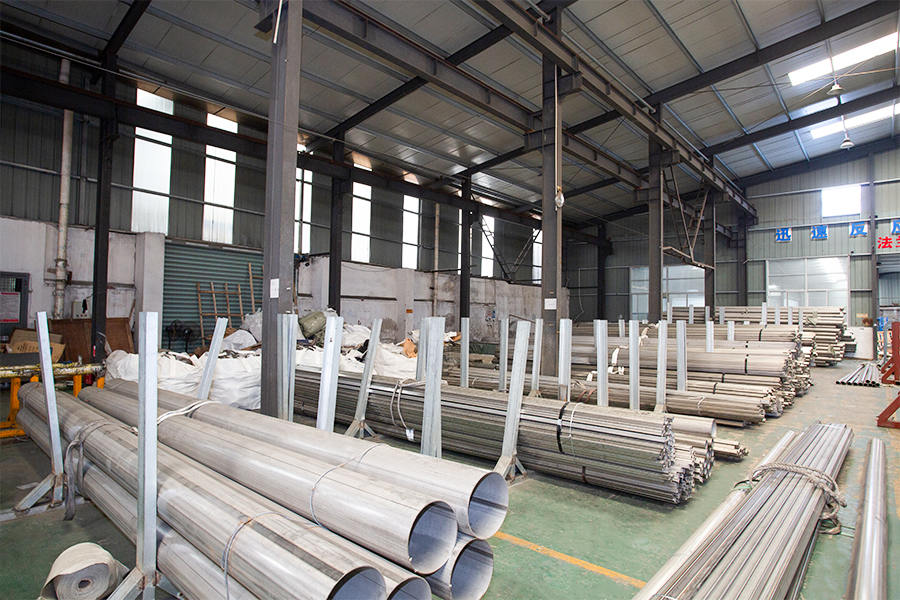Introduction to 321 Stainless Steel Welded Pipes
321 stainless steel welded pipes are highly valued in industries that demand excellent resistance to heat, oxidation, and corrosion. This alloy contains titanium, which stabilizes it against chromium carbide precipitation, making it ideal for high-temperature applications. Understanding which sectors utilize these pipes helps manufacturers and engineers make informed material choices.
Chemical and Petrochemical Industry Applications
The chemical and petrochemical sectors rely heavily on 321 stainless steel welded pipes due to their ability to withstand harsh chemical environments and high temperatures.
Handling Corrosive Fluids
321 stainless steel offers excellent corrosion resistance against acids, alkalis, and other corrosive agents commonly used in chemical processing. This makes it suitable for piping systems in refineries, chemical plants, and laboratories.
High-Temperature Process Piping
Processes such as catalytic reforming and hydrocracking generate high heat. 321 stainless steel welded pipes maintain structural integrity and resist creep at elevated temperatures, ensuring safe and reliable operation.
Power Generation Industry
Power plants, particularly those operating with steam boilers and high-pressure turbines, require piping materials that endure high temperatures and thermal cycling.
Steam and Heat Transfer Lines
321 stainless steel welded pipes are ideal for steam lines due to their ability to resist oxidation and scaling at temperatures exceeding 800°F (427°C). This ensures the efficiency and longevity of critical components.
Corrosion Resistance in Boilers
Titanium-stabilized 321 stainless steel prevents intergranular corrosion in boilers and superheaters, reducing maintenance frequency and improving operational safety.

Aerospace and Aviation Applications
The aerospace industry demands materials that are lightweight yet capable of withstanding extreme temperatures and pressures.
High-Temperature Exhaust Systems
321 stainless steel welded pipes are used in jet engine exhausts and heat exchangers where high-temperature oxidation resistance is critical. Their stability ensures safety and performance in extreme environments.
Structural Piping Components
The aerospace sector also uses these pipes for structural and hydraulic applications, where vibration resistance and dimensional stability are necessary under thermal fluctuations.
Food and Beverage Industry
Hygiene and corrosion resistance are essential in food processing and beverage production.
Sanitary Piping Systems
321 stainless steel welded pipes are used in breweries, dairies, and bottling plants. Their resistance to corrosion from acids, sugars, and cleaning chemicals ensures long-lasting, contamination-free operations.
Thermal Sterilization Lines
The pipes can withstand the high temperatures involved in pasteurization and sterilization processes without deforming or degrading, maintaining process integrity.
Automotive and Mechanical Engineering
In automotive and mechanical applications, 321 stainless steel welded pipes are selected for systems exposed to high heat and corrosive environments.
Exhaust Systems
Vehicle exhausts benefit from the heat resistance and oxidation protection of 321 stainless steel, ensuring durability and performance over long-term use.
Hydraulic and Pneumatic Lines
Hydraulic and pneumatic systems in machinery often require welded pipes that resist pressure, heat, and fluid corrosion. 321 stainless steel is ideal for maintaining consistent performance.
Oil and Gas Industry
Pipelines in oil refineries and gas extraction must endure corrosive fluids and fluctuating temperatures.
Crude Oil Transportation
321 stainless steel welded pipes resist pitting and intergranular corrosion from crude oil components, providing long-term reliability in pipelines.
Natural Gas Processing
The pipes’ thermal and chemical resistance ensures safe operation in gas processing plants, where pressure fluctuations and reactive compounds are common.
Pharmaceutical Industry
Strict hygiene standards and chemical resistance make 321 stainless steel pipes suitable for pharmaceutical production.
Cleanroom Piping Systems
The pipes ensure contamination-free fluid transfer, resist repeated sterilization, and maintain structural integrity under high temperatures.
Chemical Transport Lines
Highly corrosive solvents and pharmaceutical intermediates can be safely transported using 321 stainless steel welded pipes due to their chemical resistance.
Conclusion: Industry Dependence on 321 Stainless Steel Welded Pipes
321 stainless steel welded pipes are critical across multiple industries due to their heat resistance, corrosion resistance, and durability. From chemical and petrochemical plants to aerospace, automotive, food processing, oil and gas, and pharmaceuticals, these pipes provide reliability and long-term performance. Selecting the appropriate grade ensures operational efficiency, safety, and compliance with industry standards.
Understanding the applications and benefits of 321 stainless steel welded pipes enables engineers, designers, and procurement teams to make informed decisions, ensuring that their infrastructure meets the rigorous demands of modern industrial environments.


 English
English русский
русский عربى
عربى 中文简体
中文简体
